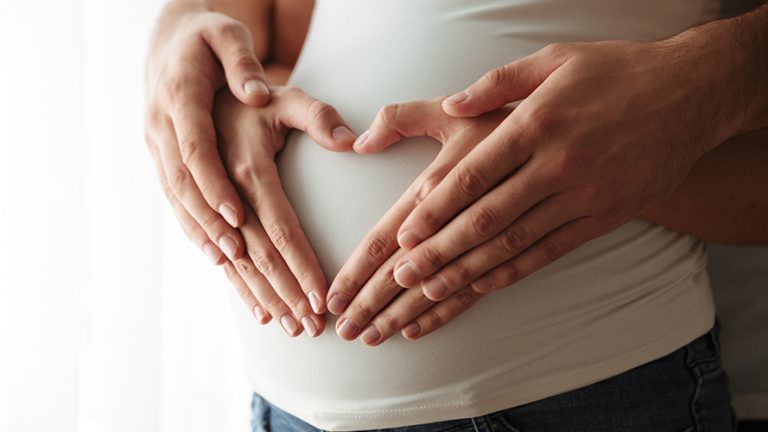Drastic lifestyle changes cause infertility among both, men and women
Healthy lifestyle choice for female fertility count as it can measurably improve your overall health and promote fertility in both you and your partner. Starting healthy habits, or eliminating bad ones, may help put you on the road to parenthood.
There are some outlined points on practical and attainable lifestyle recommendations that are suggest to follow as soon as you decide you want to conceive a baby. Lifestyle and fertility go hand-in-hand, so if you are about to embark on infertility treatment with assisted reproductive technology (ART), like IVF, these healthy lifestyle choice for female fertility count as they have a big impact on the success of the treatment plan.
Tips for a lifestyle choice for female fertility count are: –
1.Eat a healthy diet:
It’s vital to eat a healthy diet to ensure your body is getting the nutrition it needs. This includes eating plenty of fresh fruits and vegetables as well as whole grains and lean protein. A nutrient rich healthy lifestyle choice for female fertility in the year prior to getting pregnant has been associated with a lower rate of birth defects. Another side benefit is that you may shed excess weight and gain energy. It’s important you talk to your fertility specialist about any special cultural or religious dietary aspects that may affect your treatment.
For example, if you plan to fast during Ramadan, your fertility specialist may advise you to delay certain fertility treatments, like IVF, over this period. While this may be disappointing it will be better to wait for an optimal chance of success.
2.Control your weight:
Being overweight, or underweight can cause fertility problems for both men and women. Obesity can affect men by causing hormone changes that reduce fertility. It is also linked to lower sperm counts and sperm that don’t move quickly enough.
Women need to aim for a healthy body mass index (BMI) in order to help maintain normal ovulation. A female BMI for someone who is Caucasian of below 18.5 is underweight; 18.5–24.9 is normal; 25–29.9 is overweight; and 30 and over is obese. The ideal range for conception is 20 to 25. In addition, obese women are more likely to have a miscarriage than women with a healthier BMI.
If you require assistance managing your weight, you may want to consider seeing a Nutritionist who specialises in weight loss.
3.Exercise: Shape up for conception, but don’t overdo it:
Moderate and regular physical activity not only helps promote weight loss and a healthier body; it can help ease stress. Regular exercise also ensures that endorphins (the feel-good hormones) circulate your body.
Take note though, too much vigorous physical activity can inhibit ovulation and reduce production of the hormone progesterone. If you are already a healthy weight and you’re thinking of conceiving soon, consider limiting vigorous physical activity to less than five hours a week.
4.Take folic acid and an iodine supplement:
Taking folic acid when you are undergoing fertility treatment and early on in pregnancy can reduce your chances of having a baby with neural tube defects, such as spina bifida. Folic acid and iodine supplements are readily available over-the-counter from pharmacies. Please note that taking more than the recommended dose can be harmful.
5.Discuss any medications/complementary medicines with your fertility specialist:
Some medications may interfere with your fertility treatment by causing them to be ineffective. Before taking any other prescription or over-the-counter medication or complementary (herbal/natural) medicine, it is very important to discuss this with your fertility specialist. The interactions between the various medications should be reviewed to ensure the best chance of conception and a successful pregnancy.
6.Don’t smoke / reduce your exposure to second-hand smoke:
It’s well documented that those men and woman who smoke are more likely to have difficulty conceiving due to lower fertility and can take twice as long to achieve a pregnancy. Smoking can lower a man’s sperm count as well as increase sperm DNA fragmentation, which in turn increases the rate of miscarriage. Male smoking has also been noted to decrease the success rates of IVF, and may even contribute to impotence.
In women, smoking cause’s ovulation problems, early menopause, ages your ovaries, depletes your oocytes prematurely, and can affect the early development of the embryo as well as the future health of the unborn child. Women who smoke or are exposed to second-hand smoke may not respond as successfully to infertility treatments. They are also at a much higher risk of miscarriage and ectopic pregnancy. Smoking also increases the risk of cervical cancer, and can harm your cervix and fallopian tubes.
7.Avoid alcohol before and during treatment:
Alcohol significantly reduces fertility in both partners and frequent drinking before pregnancy can cause you to have difficulty conceiving, as well as increases the risk for miscarriage and birth defects.
Alcohol can affect men by causing sperm morphology and motility, free-radical damage to the DNA within the sperm, lowers testosterone levels, reduces sperm count, and causes erectile dysfunction.
In women, alcohol may contribute to irregular periods, irregular ovulation and luteal phase defects, reducing chances of conception.
It’s recommended that both male and female partners stop drinking alcohol during fertility treatment. Avoiding alcohol will give you the greatest chance of conceiving and help set the stage for a healthier pregnancy.
8.Stay clear of recreational drugs:
There are many well-known reasons to avoid illegal and recreational drugs, but their impact on infertility is not often discussed.
Anabolic steroids can have a severe impact on a man’s fertility, as can cocaine and marijuana. Even intermittent usage of these drugs can shrink your testes as well as reduce the number and quality of your sperm.
Recreational drug usage by women can be a source of potential danger to the developing baby.
9.Curb the caffeine:
Caffeine affects both men and women by putting stress on the adrenals while causing blood sugar to rollercoaster.
While the evidence is not conclusive, research studies have found that high levels of caffeine consumption might prolong the time it takes to get pregnant. One study found that women who consumed over 500mg of caffeine per day had an 11% increase in the time they took to conceive their first baby compared with women who consumed less.
The average amount of caffeine in a cup of coffee can range from 40mg – 175mg depending on the type and preparation. Fertility experts suggest couples trying to get pregnant should consider cutting out coffee and caffeinated drinks.
10.Reduce stress:
Unfortunately, as month after month goes by, feelings of anxiety, depression, and stress may kick in. While the exact link between fertility and stress remains a mystery, high levels of stress can make falling pregnant more difficult.
As overwhelming as infertility is, there are ways to reduce your stress and anxiety. Stress management techniques such as hypnotherapy, acupuncture, massage, yoga, and meditation – can be very effective. Talking to a counsellor who specialises in infertility can help you find coping strategies, as well as manage the pressure on your relationship and general health.
Find time to do the things you enjoy like reading, going for walks, long soaks in the bathtub. Feeling rejuvenated will go a long way towards helping you stay focused and in control.






Add comment